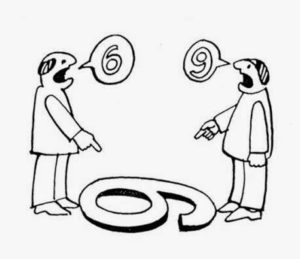How Recognizing Your Own Flaws Can Help You Deal With Your Partner’s (Part 1)
Have you ever judged someone for making a choice or acting a certain way and then found yourself in that same situation faced with the same choice? It’s a lot easier to be critical when you’re not the one going through the problem. You never know what you would do or what “the right” thing to do is until you’re in that situation.
Along those same lines, you don’t know what your spouse is going through on the day he doesn’t pick up his clothes or take out the garbage. And he doesn’t know what you’ve been through on the day you didn’t have energy to make dinner or do the laundry. The point is, how much more peaceful would your marriage be if you had empathy for your spouse and if you looked at your own shortcomings before seeking out his? The following points outline how evaluating and working on your weaknesses can help strengthen your marriage:
1. It helps you develop compassion.
Think about one of your faults or flaws—one that’s a little deeper than, say biting your nails or snoring. Maybe you’re a little obsessive about having a clean house or you love watching hours of television every night. Maybe you like to gossip or you’re especially good at holding grudges.
Whatever it is that might be keeping you from progressing into a better person, ask yourself this question: Would you want your spouse holding a certain flaw against you all the time? Would you want him to judge your entire character based on one or two of your flaws? What if he brought it up every time you got in an argument?
It’s not exactly pleasant having your own faults getting thrown in your face. So how do you think your spouse would feel if you did the same thing? Putting yourself in his shoes and seeing things in a different light can help you feel less angry toward your spouse for one his flaws. It can help you feel the compassion you need to look past something that’s been bugging you.
Compassion is based on love and when love is guiding your actions instead of anger and resentment, you’ll have much more success in all aspects of your marriage. Compassion grows when you develop a sense of understanding, and when you genuinely try to grasp how it would feel to be someone else. Compassion comes from getting to know someone better, which means you need to take the time to really talk to and communicate with your partner.
End part 1




 garbage, and junk overwhelm the home and whoever has the misfortune to live there. If we don’t have a way to remove the refuse that might build up in our marriages, represented by hurt, bitterness, and mistakes, the relationship will eventually cease to function.
garbage, and junk overwhelm the home and whoever has the misfortune to live there. If we don’t have a way to remove the refuse that might build up in our marriages, represented by hurt, bitterness, and mistakes, the relationship will eventually cease to function.